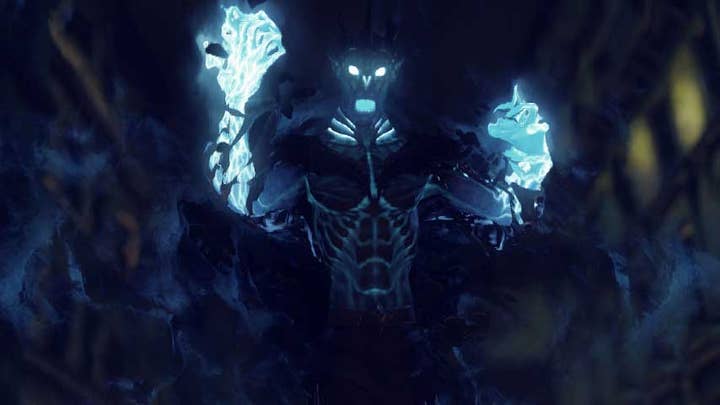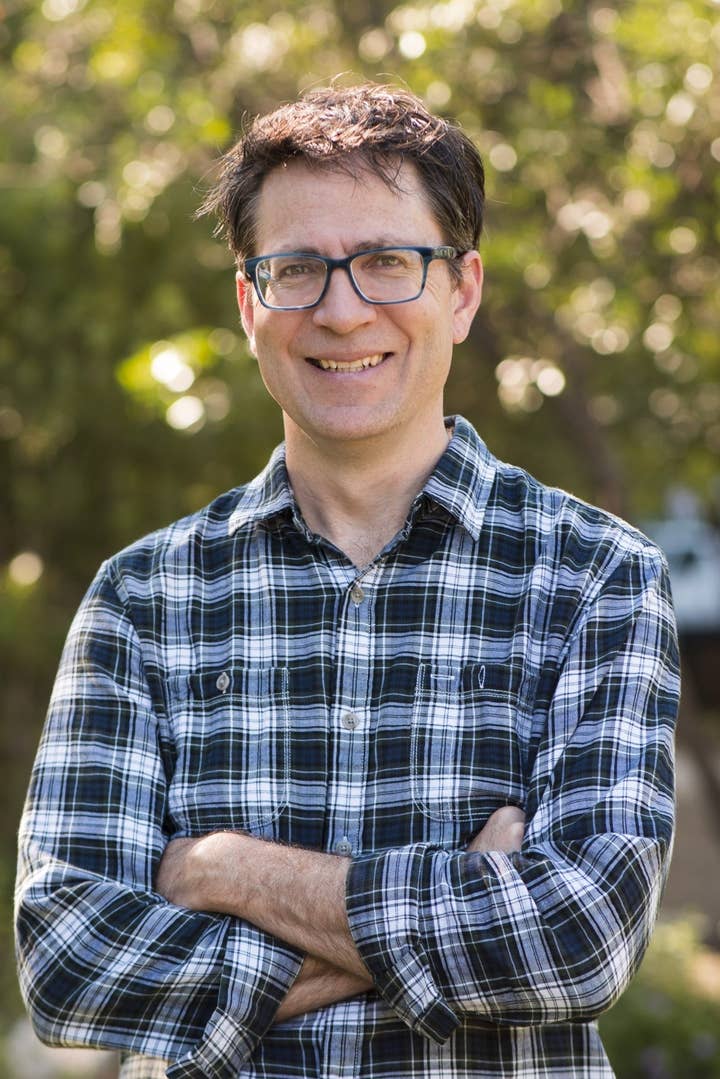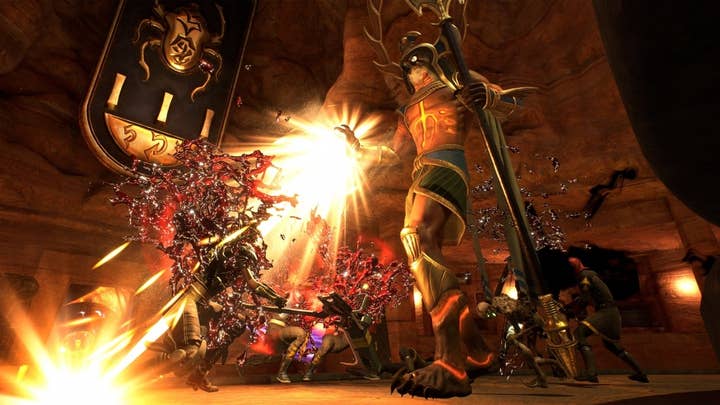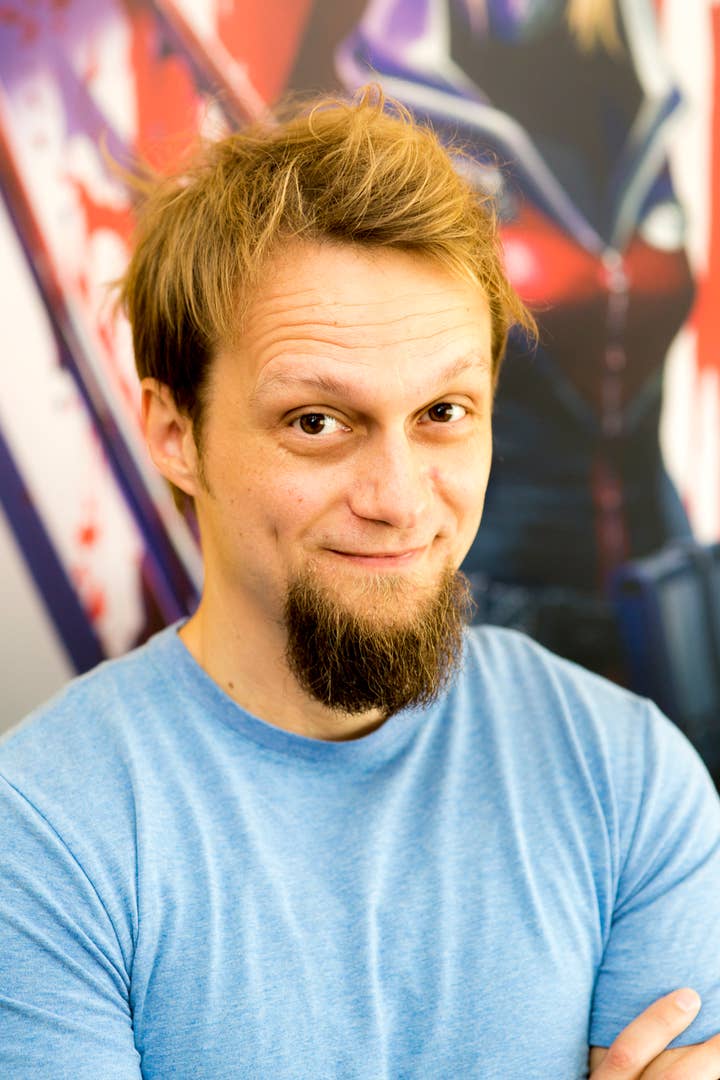QC Games: “We may make terrible calls, but at least they're ours”
Why the Breach developers left BioWare and EA for life as a AAA independent
When a game gets cancelled it's always the people who were making it that get hurt the most.
Years of their lives working diligently and creatively to build something special and then, through not necessarily any fault of their own, it's gone.
It's especially galling when the cancellation isn't due to qualitative reasons, or even budgeting constraints, but simply down to a company's internal change of strategy. That's what happened to EA-owned BioWare Austin and Shadow Realms, a nearly completed action RPG that debuted at Gamescom 2014 and cancelled less than six months later. A free-to-play multiplayer game was interesting to EA when it was pitched, but after struggling with similar titles (including Dawngate), and seeing how the industry was trending away from such experiences, EA decided it no longer fitted with its strategy.

And what's worse, the news of the cancellation was greeted relatively enthusiastically by the markets. EA's share price rose on the back of the news.
Responding to the set-back, producer Dallas Dickinson and designer Gabe Amatangelo decided to get out from EA and go it alone. They set up QC Games and began creating a game in the spirit of the one they were building at BioWare.
"When you work for any big company, there are decisions that are made that is probably best for the company, but it doesn't feel that way for the frontline developers," explains Dickinson, who is now CEO and president of the new studio. "It could be a decision about your title, or something that informs an aspect or feature of your title, but it could also be a big decision such as whether a title ships. We wanted to be in a place where we could be the ones that make those decisions.

"What we aspire to be is the old-school Blizzard."
Chief creative officer Amatangelo cuts in: "Or even old-school BioWare."
Dickinson again: "Yes. Exactly. The sort of developers that were doing stuff that wasn't what the market said it wanted... there was no data that said this was the right game to be made, or this is where the trend is, this is what sells...
"All of those things are what smart business decisions are based on when you're a giant corporation, when you're an Activision or an EA."
Amatangelo: "It's stock price first."
"When you work for any big company, there are decisions that are made that is probably best for the company, but it doesn't feel that way for the frontline developers"
Dallas Dickinson, QC Games
Dickinson: "Now, we get to make choices here that are creative choices. In certain ways, Gabe and I have been making versions of these games for years, even within the big MMOs. But this [new game] is also very different, because the world is changed, the gaming culture has changed, the consumer has changed. And also because we are able to make our own calls - they may be terrible calls, but at least they are ours.
"This also lets us engage with the community in a different way. We can talk directly with players."
Amatangelo: "Some big companies do it well. Ubisoft did it with For Honor. A game that is growing the industry by trying different things. We are making a AAA-style thing that's different. Instead of doing another card game, or MMO... we wanted to try something different."
That different game is Breach, a free-to-play co-operative action RPG that is the spiritual successor to Shadow Realms. Players pick their class (they can even play as the bad guy) and then compete through a series of challenge areas before facing a boss. Like Shadow Realms, the game was unveiled at Gamescom, but this time the project is approaching its final months. In fact, the game we played was pretty much complete.

"I don't think it's a normal thing [to announce a game this late], but I think it's right," says Dickinson. "It's a conscious decision that we made.
"With this game specifically - so this isn't for everybody - it's kind of a weird game, it's kind of new. So we wanted to let people have hands-on as soon as we announce. If we described this game to you and you didn't get to play it, you'd have a whole lot of questions. You'd be like: how does that work? Is it like this or like this? And because we're between a whole bunch of different genres, the answers have always been 'yes, we are very much like that, but also very much like that'. So because of that, we wanted to make sure the game was in a state where we could let people in and really feel the depth of it and the polish and the core game cycle.

"We're interested to hear how people in the press talk about Breach, and how the community starts talking about the game, once the alpha is available in September. That way we can spot things that are being misunderstood, perhaps it's the interface or the way we are introducing that aspect of the game or how we're communicating it. That's the feedback that we can take straight into it. If we'd announced this game six months ago, where you don't get to see it or touch it for a while, I have no idea what the internet might start thinking our game was."
He continues: "We are ex-BioWare folks. People will be going into it with Star Wars Knights of the Old Republic expectations, which isn't exactly right. People might even come into it with Shadow Realms expectations, which is sort-of right but sort-of not. Even though that game never quite came out, people still played it at Gamescom and at PAX four years ago. But even then, there were a lot more questions about that game that we hadn't answered when we let people have the first hands-on. This is in a much more finished and polished state than that game was when people touched it. There was a lesson learned about [Shadow Realms]. It was already a bit weird and it wasn't complete when people could first play it, which was maybe an odd message."
Breach has been in development for the best part of three years, although to begin with the team was only a handful big. QC Games is much bigger today, although they're still 'less than 100 people'. Which is why the upcoming alpha is so important.
"We're like the Altered Carbon of games.... the PG Altered Carbon."
Gabe Amatangelo, QC Games
"As a mid-sized company, we can test with 20 or 30 people, but we can't test with like 1,000. So we need the help of the community," Amatangelo explains.
Dickinson adds: "We have found some edge-case stuff where that is a troll build that we need to address in some way. But the internet is how you find all of that. Especially when you give people the ability to be the bad guy. We're telling people to troll others in the game, but we want to see if there's a counter to that. We expect that there will be, but some cases we might need to change a class here or there."
Amatangelo again: "What is great about our system is that we are able to move quickly. We architectured everything so that we can make classes fast. Our plan is to release classes on a frequent cadence. Easily once a month, if not more. For a while anyway."
Dickinson: "This is clearly not a MOBA, but we sort-of follow a MOBA model in certain aspects of it, and the most successful MOBAs... that's what they did. They had a big release cadence early on in their cycle, so there was a new one and another and another and another. But there comes a point where you have enough depth. You don't want to disrupt things too much. It's actually more impactful to make a deep change to an existing class, particularly ones that have fallen out of favour and we want to bring them back into rotation."
QC Games is another developer that's neither AAA or indie. A company clearly making games on a bigger scale than most indies, but they're only on the cusp of being called AAA. It's an interesting and risky area to play in, but it's also where some of the biggest innovations are taking place.
"It's the AAA independent. It's the talk Ninja Theory did when they discussed trying to create something AAA, but also doing things differently," Dickinson says. "We are going for the production values of the high end stuff, although we don't have that kind of money. So we're doing something different, too."
Amatangelo concludes: "We're like the Netflix shows you're seeing at the moment." He pauses. "We're like the Altered Carbon of games.... the PG Altered Carbon."
